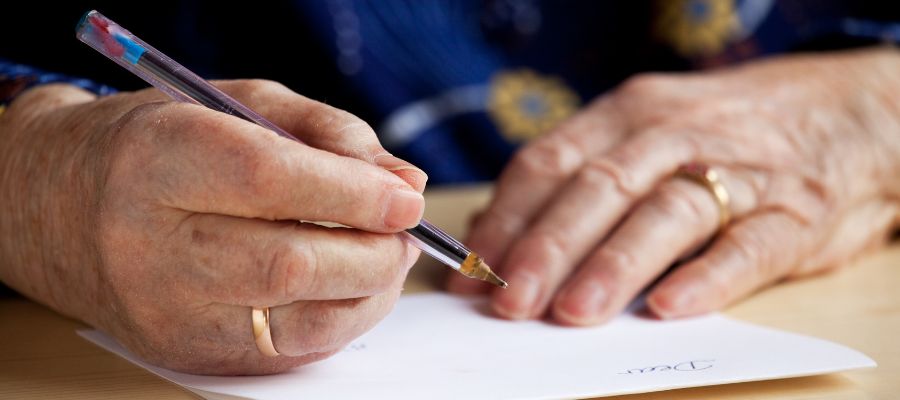Recovering debt from an individual can be a difficult task, especially without the correct legal advice and plan of action.
Having a clean debt recovery plan will help with giving you a clear idea of how you are going to recover your money from your debtor.
If you are owed money and don’t know how to recover it, we are here to help with this debt recovery plan.
Process of debt recovery
It’s first important to understand what to expect from the process. When recovering debt, the initial step is to send a letter before action (LBA). In about 86% of cases, the debt will be recovered at this stage, without a further need for legal action.
An LBA formally requests the payment of a debt and provides a set amount of time in which it should be paid. It can also warn the debtor that you intend to embark on legal action if it is not paid. This is part of the process known as a pre-action protocol. It’s important to word this document carefully to ensure it doesn’t come across as a threat or blackmail, and that it is consistent with what may later be claimed in court.
If you do not receive a satisfactory response to your LBA, you should consider beginning the legal process of recovering your money. At this point, you may choose to hand the matter over to a debt collection agency or seek legal advice.
If a debtor responds to the letter disputing the debt, you will need to reply, addressing each of their points, before moving forward with court action.
It’s also important to research whether the debt is worth taking a claim out against at this point, considering the court fees. These are generally proportional to the amount owed – you can find out more on the government website.
If you choose to issue a claim, you will need to complete a claim form, or ask a third party to help with this. The form should include the background and particulars of the claim, including how the debt arose and any legal costs being claimed. This should be filed at the court or submitted online.
When the claim has been issued, it will be served on the debtor. They will have two weeks to file an acknowledgement of service, which will include a statement concerning whether they plan to pay the debt or dispute it.
If the debtor doesn’t respond, you can go forward and apply to the Court for a Judgement in Default against them. This usually becomes a judgement that you should receive the full debt owed, along with legal costs.
If they dispute the claim, the case may come to a trial at a county court, or you may be able to negotiate the debt through mediation or discussions out of court.
After a judgement in your favour, the debtor should pay the debt as agreed. If they don’t, you can take steps to enforce the judgement. These can include instructing bailiffs, placing a charge over the debtor’s property, taking out a third-party debt order or obtaining an order where the debtor’s employer will pay the debt directly from the individual’s wages.
Filling out a Debt Recovery Plan
Making a debt recovery plan can give you clarity on your plan of action for handling a debt. It can also be a useful document if you decide to include a third party in your claim – such as a solicitor or debt recovery agency. Download our template above and fill in the details as explained below.
Initial Details
This section is a simple record of the most important details of the debt. You should include the full name of the debtor, the amount owed, and the reason the money was given in the first place (for example, if it was in payment for a service, or as a personal loan). You can also include some details about why the repayment is necessary (such as if the service was unsatisfactory or the agreed repayment time has elapsed).
What records do I need to keep?
Here is where you can note down any current documents you will need to keep available as proof of the debt, as well as any future documents you may need to make copies of.
This could include any written agreement for the initial transfer of money, records of conversations with the debtor concerning the debt, your Letter Before Action, and anything your solicitor has asked for.
How will I inform and remind them of the debt?
This is where you plan how you’ll make contact with the debtor concerning the debt. This can include informal conversations or emails stating that a repayment is expected at a particular date. It can also include your Letter Before Action.
You could alternatively go down the route of beginning insolvency or bankruptcy proceedings. This process begins with A Statutory Demand, which is similar to a Letter Before Action – warning that failure to pay the debt will result in further action. However, this course of action is only possible if an individual owes you more than £5,000 or a company owes you more than £750.
What are the court fees and do I qualify for legal aid?
Use the government guidance to determine the likely fees should your case require legal action. This page can also help you to work out whether you qualify for legal aid, or if you are likely to receive legal damages if you win your case.
What legal action is open to me?
Here is where you can explore the options you qualify for legally. This could be making a claim, consulting a solicitor to help you negotiate out of court, or insolvency proceedings.
This might depend on the amount owed, whether it’s to an individual or a business, the time the amount has been owed for, and whether the debtor is solvent.
What is my planned course of action if the debt is not paid following a judgement?
This section is for deciding if you intend to take enforcement action if the judgement is not honoured by the debtor, and which action you plan to take. Some of the most often taken actions include:
- Instructing High Court or County Court bailiffs to visit the debtor’s property and request the payment or seize goods.
- Applying for a Charging Order. This means you will receive proceeds from a sale of the debtor’s property.
- Applying for a Third Party Debt Order. This will instruct a third party (like a bank) to pay you from the debtor’s account.
- Applying for an attachment of Earnings order. This means the debtor’s employer will pay you a portion of their wage each month until the debt is paid off.
Who will I ask for help?
Whether you intend to consult a solicitor if proceedings reach a certain stage, or if you have a high court bailiff in mind, here is where you write down anyone else who may be involved in your case.
In Need of High Court Enforcement Officers?
Able Investigations has over 20 years of experience in the enforcement industry. Our professional, certificated officers are on hand to help individuals and businesses retrieve assets efficiently and legally. Contact us today to learn more.




Comments are closed.